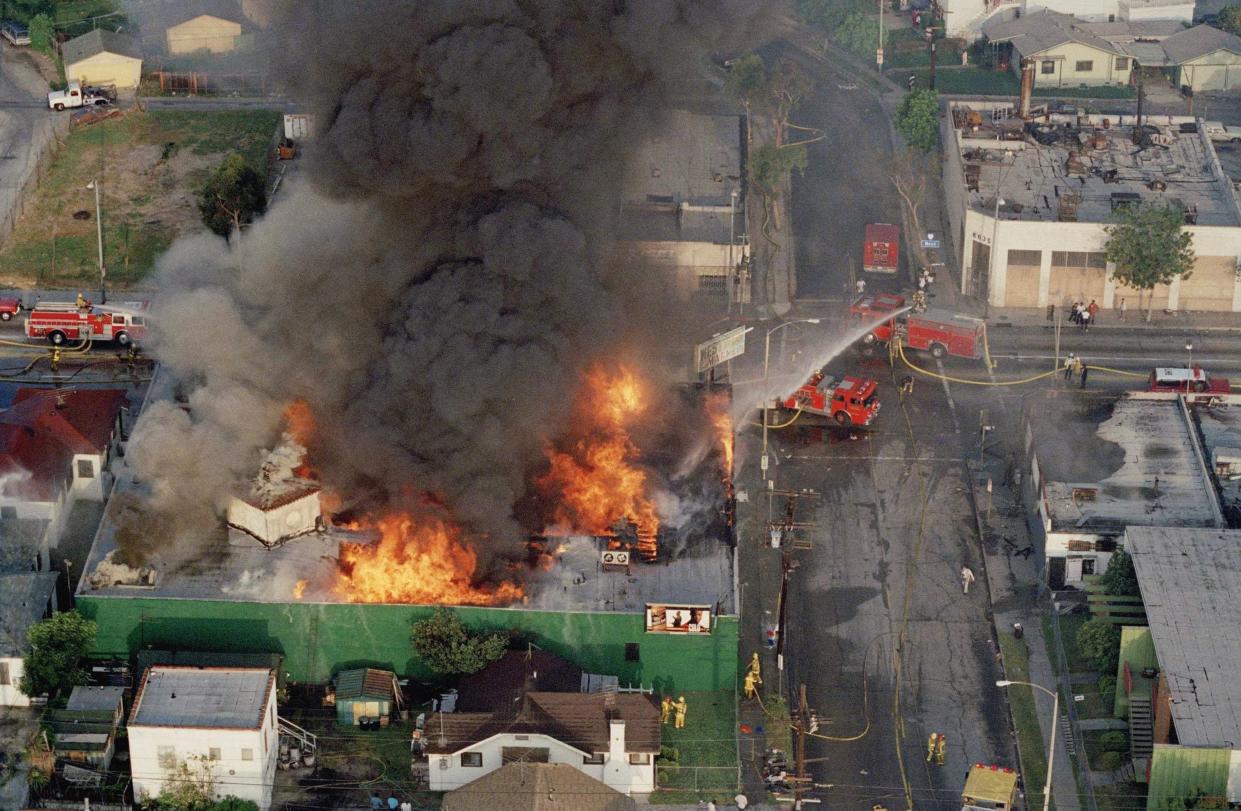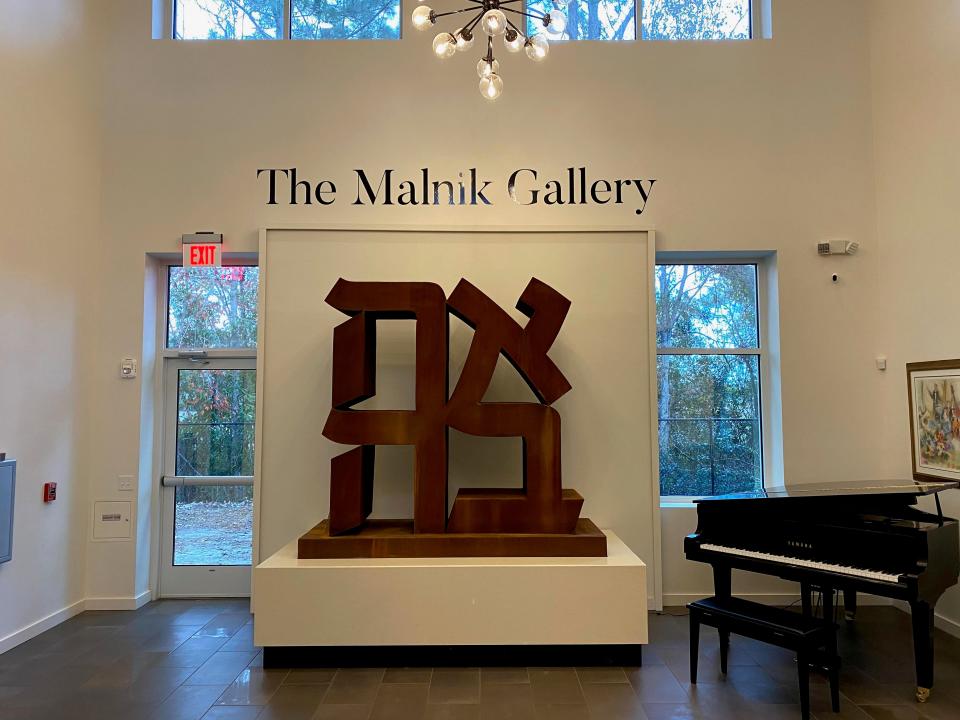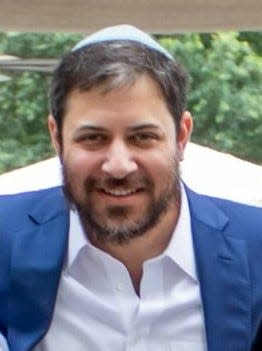Rabbi Novack: Day of mourning reminds us 'community’ comes from unity, not uniformity

- Oops!Something went wrong.Please try again later.
As a child I witnessed a community at the height of disunity. I grew up in Los Angeles and vividly remember the Rodney King riots that shook the city. As the famous Samy’s Camera store burned just blocks away from my childhood home, my neighbors and I held fire hoses to help the understaffed and overwhelmed LAFD try to extinguish the inferno.
My childlike optimism went up in smoke along with that beloved neighborhood business. But then it returned. Rodney King, the man who more than anyone else had a right to be outraged, got on the radio and said, “Can’t we all just get along?” That call for unity powerfully resonated across the country.
In recent years, this need for unity has been greater than ever. Anyone who turns on the TV or scrolls through social media can see just how increasingly divided and polarized we have become. The tensions are so high that sadly, many have resorted to only associating with people whom they align with and are cutting off ties with those they disagree with on any one political or social issue.
Rabbi Novack: Reflecting on culture, community and Chabad of Southside’s 18th year
Sustainability advocate: True resiliency only possible when society works together on serving the common good
Letters: Possible development among ongoing critical issues for Cumberland Island
This is a tragic state of affairs. What we need now is to look back to King’s famous words. Unity means learning how to “get along,” even when we disagree. This is even enshrined in our country’s motto: E Pluribus Unum — “Out of Many, One.” We are one nation made of a cross-section of many cultures, peoples, beliefs and opinions.
Unity doesn’t mean uniformity, or the absence of disagreements. Our lack of uniformity is a feature, not a defectof American life. What makes us great is the diverse and broad spectrum of beliefs that make up the patchwork of our country. Debating people with whom we disagree is healthy, when done in a respectful manner.
This theme is echoed in the Jewish calendar. On July 26, Jews will mark Tisha B’Av, a day traditionally observed by fasting and mourning. It commemorates the destruction of the temple in Jerusalem in the first century, as well as the sacking of the holy city by Roman soldiers, who carted off countless Jews into exile and slavery.
Jewish tradition teaches that a primary cause for the destruction of the Temple was “Seenat Cheenam,” or baseless hatred. The disunity and communal infighting that existed in first-century Jerusalem allowed the Romans to breach the walls and ultimately destroy the city. The remedy, we are taught, is “Ahavat Cheenam,” or baseless love. This means treating people kindly and judging people favorably, even when you disagree with them.

A good example of this comes from Benjamin Franklin’s autobiography, where he describes how he and a rival legislator overcame their animosity and distrust. He asked his opponent to borrow a rare book from his library: “I wrote a note to him, expressing my desire of perusing that book and requesting he would do me the favor of lending it to me for a few days.”
When Franklin returned the book, he noticed that things had changed between them. “When we next met in the House, he spoke to me (which he had never done before), and with great civility. He ever after manifested a readiness to serve me on all occasions, so that we became great friends, and our friendship continued to his death.”
This has become known as the Ben Franklin effect — a psychological phenomenon where people are more likely to feel positive feelings toward someone after doing something kind for them. Franklin’s opponent acted with unconditional, undeserved kindness, and a friendship blossomed where enmity had long held root.
More: Bill to combat divisive rhetoric divides Jacksonville City Council
Similarly, the best way I know of to combat the baseless hatred we see in our world today is to do something kind for someone else, especially when you disagree with them. Next time you rush to judge someone, take a step back. Let the framework of kindness and civility guide your interactions.
Imagine what our neighborhoods would look like if we resolved to treat each other with kindness and respect. Much like the people who helped put out the Samy’s Camera blaze, unity means doing what we can to help each other. Lending our neighbor a hand, regardless of their background or what their views are.
While it might not be the panacea that will solve all our problems, each act of kindness can help bring back the sense of community that seems to be missing and for which so many people are longing.

Rabbi Shmuli Novack, director, Chabad of Southside
This guest column is the opinion of the author and does not necessarily represent the views of the Times-Union. We welcome a diversity of opinions.
This article originally appeared on Florida Times-Union: Ancient Jerusalem to modern America, a call for kindness and respect

